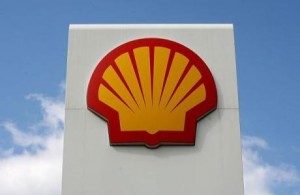 London, UK (Reuters) – Anglo-Dutch oil company Royal Dutch Shell today reported earning for fourth quarter 2013 earnings of $2.2 billion compared with $7.4 billion in the same quarter a year ago. Full year 2013 CCS earnings were $16.7 billion compared with $27.2 billion in 2012.
London, UK (Reuters) – Anglo-Dutch oil company Royal Dutch Shell today reported earning for fourth quarter 2013 earnings of $2.2 billion compared with $7.4 billion in the same quarter a year ago. Full year 2013 CCS earnings were $16.7 billion compared with $27.2 billion in 2012.
Fourth quarter 2013 CCS earnings excluding identified items were $2.9 billion compared with $5.6 billion in the fourth quarter of 2012. Full year 2013 CCS earnings excluding identified items were $19.5 billion compared with $25.3 billion in 2012.
The company said that the earnings were impacted by higher depreciation, increased exploration expenses, lower upstream volumes and weak industry conditions in downstream oil
products.
Capital spending will be reduced. In 2013, this totalled $46 billion, including $8 billion of acquisitions. In 2014, Shell expects total capital spending of around $37 billion, including $2 billion of previously announced acquisitions and also increase its rate of asset disposals, with a target to sell $15 billion worth of assets in 2014-15.
The company plans to sell assets, cut spending and freeze a controversial Arctic drilling programme to improve returns after a major profit warning.
Just a month into his new job as chief executive of the world’s No.3 investor-owned oil company, Ben van Beurden set out plans to make the group much leaner.
The planned changes follow a profit warning for the quarter to the end of December, detailing across-the-board problems that partly reflect how the industry is grappling with flat oil prices, the need to control costs and replace oil reserves that are being used up in production.
“Our overall strategy remains robust, but 2014 will be a year where we are changing emphasis, to improve our returns and cash flow performance,” van Beurden said in a statement according to Reuters.
The company said it would also take tough decisions on projects, cancelling this year’s planned controversial and costly hunt for oil in Alaska’s Arctic seas, in a U-turn of plans made as recently as December.
To sweeten investors, it plans to raise its first quarter dividend by 4 percent compared with the same period last year to $0.47 per share, in a move which it said reflected confidence in its ability to boost free cash flow.
Shares in Shell gained 2.2 percent to 2,173 pence, making it one of the top risers on Britain’s bluechip index.
“This is a good start, they’re saying the right things, more loudly and more quantified than we had expected,” Royal Bank of Canada analyst Peter Hutton said, adding that the increase in the dividend was “confident” and ahead of his expectations.
Shell had spent around $4.5 billion searching for oil off the coast of Alaska since 2005 but was forced to cancel last year’s Arctic offshore drill season after the grounding of a drillship in a storm in 2012 and against a backdrop of significant environmental opposition.
“We are making hard choices in our world-wide portfolio to improve Shell’s capital efficiency”, van Beurden said.
The $15 billion of disposals targeted for this year and next would be equivalent to around 6.5 percent of Shell’s current $228 billion market capitalisation and compared to proceeds from divestments of $1.7 billion in 2013.
WEAK PRICES
RBC ‘s Hutton said that on a return on average capital employed basis, Shell was in line with its peers at about 11 to 12 percent. But the company had more opportunity than others to improve that metric, he added, given that a high proportion of its capital was employed in projects yet to come onstream or in U.S. shale gas.
Weak gas prices in the U.S. prompted Shell to say that it was considering asset sales in its U.S. shale business and it warned that impairment charges were possible.
The company is currently valued below its peers, with a forward looking price to earnings ratio of 9.8 times, compared with its European peers which are on 11.6 times.
Van Beurden also said Shell would abandon its previously-set cash flow and spending targets. The company had set a cash flow target of achieving between $175 billion to $200 billion between 2012 and 2015, at an oil price of between $80 to $100.
Shell had also pledged a four-year net investment spend of $130 billion for 2012 to 2015, based on a $100 oil price scenario.
Fourth-quarter earnings, excluding identified items and on a current cost of supply basis, came in at $2.9 billion, in line with a downgraded profit expectation it gave on Jan. 17, and making the quarter its least profitable for five years.
Shell blamed the fourth quarter profit warning on weak refining profit margins, higher production costs, output stoppages in Nigeria and maintenance in its LNG business. The company had also undershot analysts’ forecasts in the third quarter of 2013.
The step-up in disposals had been flagged by Shell last October, although no target was given, and the company has already begun the process, raising $2.14 billion from selling stakes in projects in Australia and Brazil.
Van Beurden is due to give more detail on his strategy for the company at a management day on Mar. 13.
U.S. oil firms Exxon Mobil Corp, the world’s largest publicly-traded oil company, and ConocoPhillips are both due to report fourth-quarter earnings later on Thursday.


